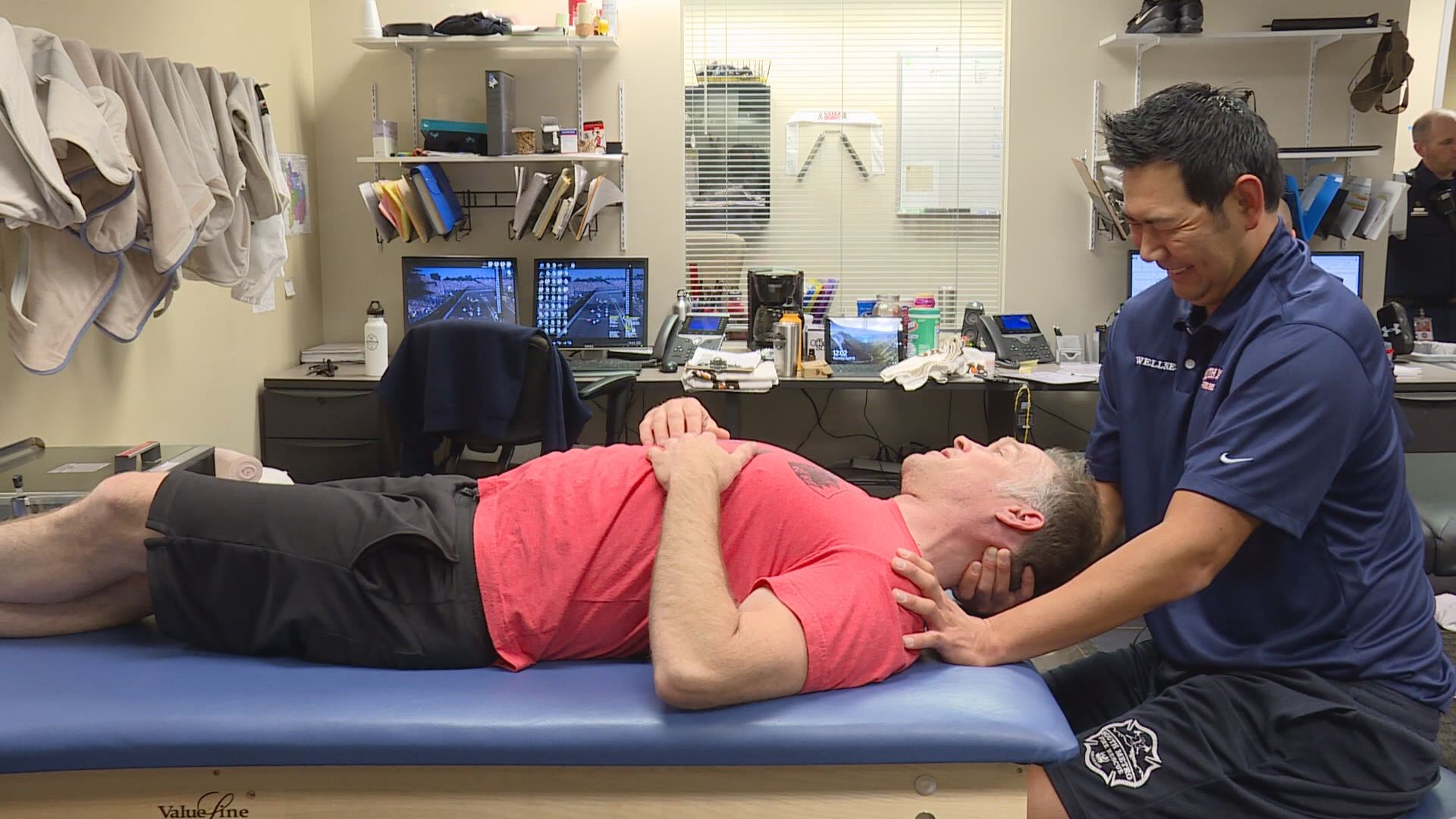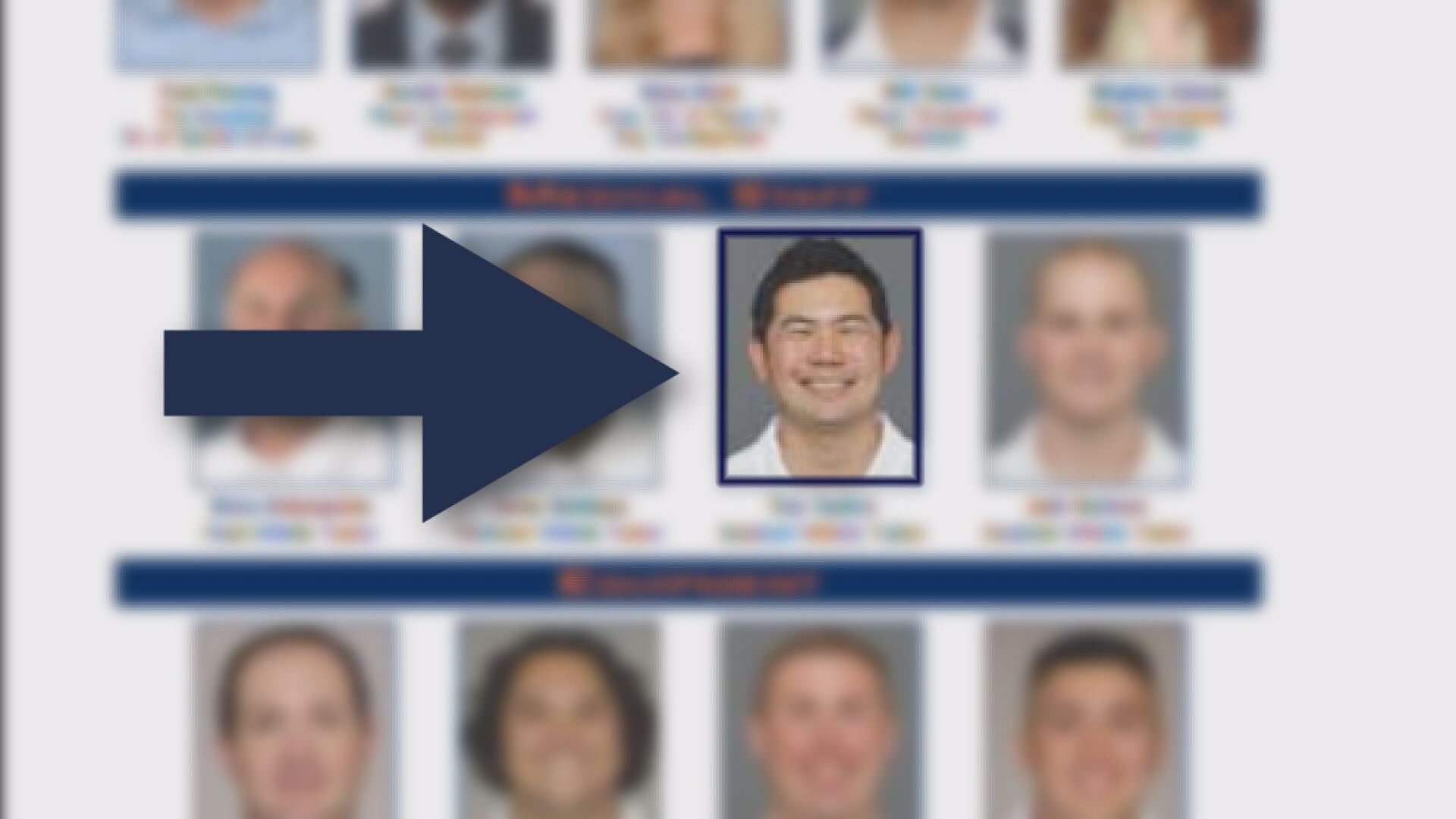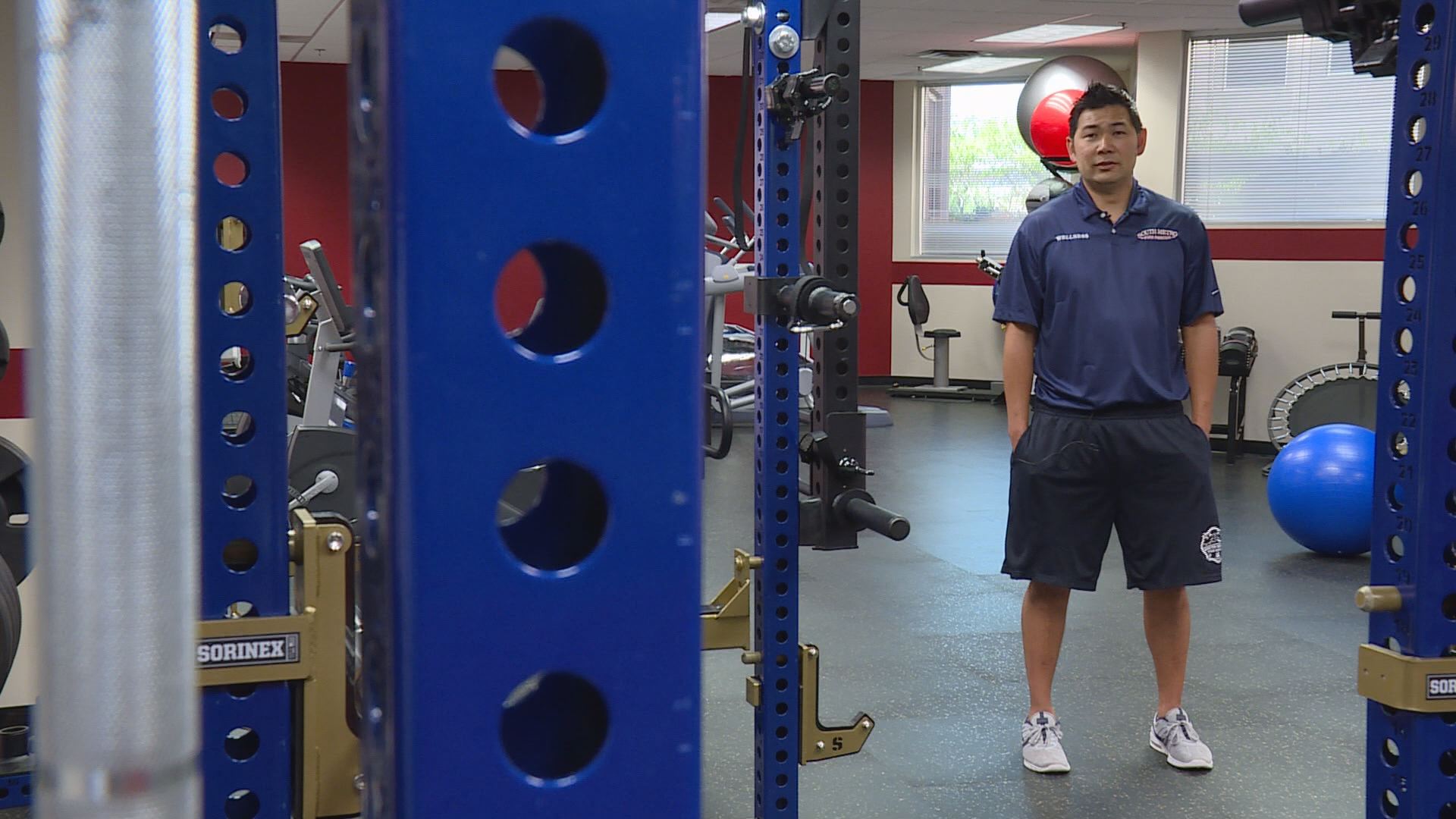For the first time in 41 years, "Greek" won't be running onto the field to care for an injured Denver Broncos player.
Steve Antonopulos, the man known as "Greek," was promoted to the team's director of sports medicine.
Vince Garcia will take his spot sprinting on field.
This story is not about "Greek" and it's not about Garcia, but it IS about a job that Garcia previously held… a job we never knew existed.
Before becoming the Broncos trainer, Garcia was the head athletic trainer for South Metro Fire Rescue.
Yeah, we know?! A fire department has an athletic training staff?

"What Vince started here, we try and incorporate a sports medicine model here, very similar to how a traditional athletic training room works in the college or professional setting," said South Metro Fire Rescue Wellness Director Trae Tashiro. "When I graduated from college, the only thing on my radar was athletics. I thought that would be my career for life. I worked with the Denver Broncos and from the Broncos, I went on to work at the University of Colorado with the Men's basketball team.

Tashiro is living his dream job, even though it's not in athletics.
"We treat and have a rehab center for all of our firefighters to take advantage of, where they can come and do all of their physical therapy from any injuries they sustain, personal or at work," said Tashiro. "We also have a fitness side of things."
Tashiro is based in the basement of South Metro Fire Rescue headquarters in Centennial.
"Full time, we have two athletic trainers, including myself. And then, we have a full time, certified strength and conditioning coach. We have a part-time PT (personal trainer) that helps us out, as well as a part-time muscle activation specialist," said Tashiro.
RELATED: Keeper of the Denver bison herd
He gave an example of how having a full-time wellness staff can save money. Instead of sending an injured firefighter through a workers' comp process, he detailed how the firefighter might be able to get back to worker sooner based on the time they can spend on one case. Instead of multiple hour-long rehab sessions over weeks, they can be more hands-on for longer.
"On average, I would say we see our firefighters for anywhere from two-and-a-half to three hours a day, three-to-five days a week. They're getting more treatment time per session, but also more frequently, as well, during the week," said Tashiro. "Since the beginning of the year, we've averaged about 50 treatments a week."
He said the Denver Fire Department has a program like South Metro, but this type of care is still rare in the profession.
"Some departments do the strength and conditioning side very well, and some do the rehab side very well, but very few have both in house," said Tashiro.


